JANUARY
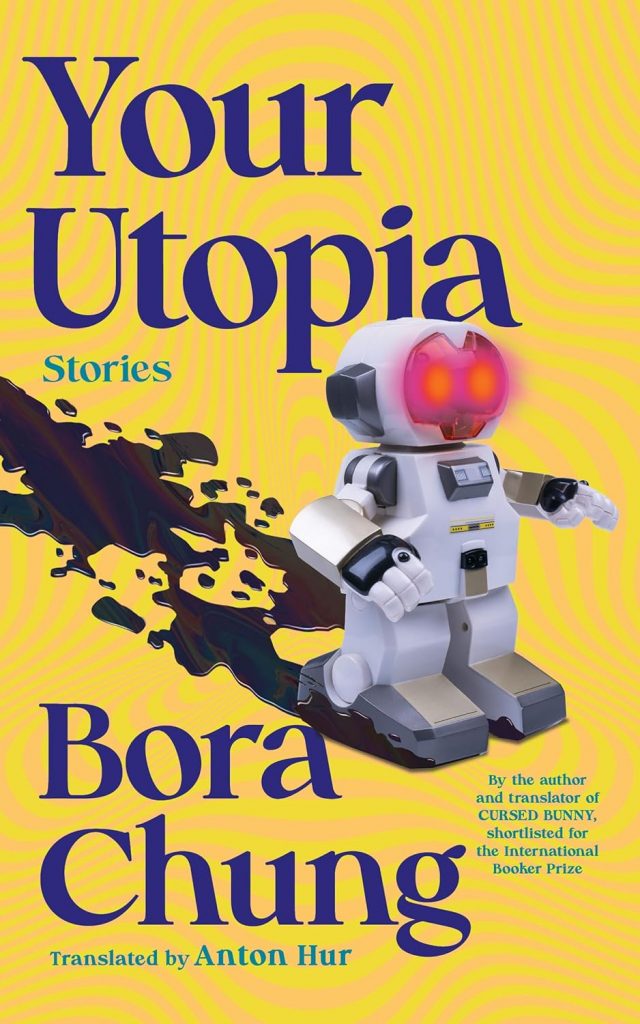
Your Utopia by Bora Chung, translated from the Korean by Anton Hur (Algonquin Books, January 30)
In “The Center for Immortality Research,” a low-level employee runs herself ragged planning a fancy gala for donors, only to be blamed for a crime she witnessed during the event, under the noses of the mysterious celebrity benefactors hoping to live forever. But she can’t be fired—no one can. In “One More Kiss, Dear,” a tender, one-sided love blooms in the AI-elevator of an apartment complex; as in, the elevator develops a profound affection for one of the residents. In “Seeds,” we see the final frontier of capitalism’s destruction of the planet and the GMO companies who rule the agricultural industry, but nature has ways of creeping back to life.
FEBRUARY
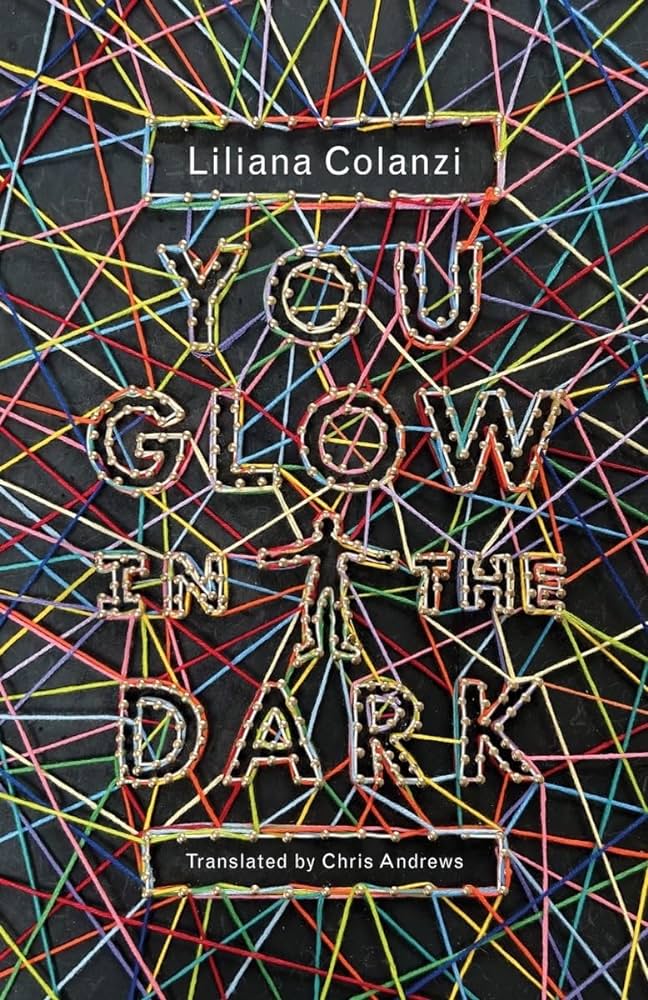
You Glow in the Dark by Liliana Colanzi, translated from the Spanish by Chris Andrews (February 6)
The seven stories of You Glow in the Dark unfold in a Latin America wrecked and poisoned by human greed, and yet Colanzi’s writing—at once sleek and dense, otherworldly and intensely specific—casts an eerily bright spell over the wreckage. Some stories seem to be set in a near future; all are superbly executed and yet hard to pin down; they often leave the reader wondering: Was that realistic or fantastic? Colanzi draws power from Andean cyberpunk just as much as from classic horror writers, and this daring is matched by her energizing simultaneous use of multiplicity and fragmentation—the book’s stylistic trademarks.
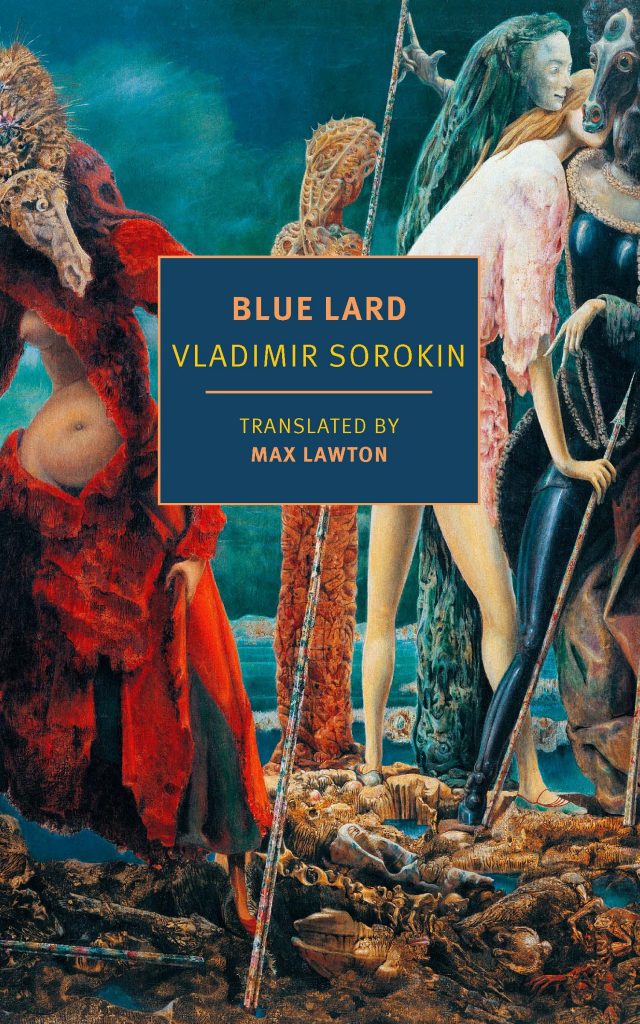
Blue Lard by Vladimir Sorokin, translated from the Russian by Max Lawton (NYRB Classics, February 27)
The book begins in a futuristic laboratory where genetic scientists speak in a Joycean dialect of Russian mixed with Chinese—peppered with ample neologisms—and work to clone famous Russian writers, who are then made to produce texts in the style of their forebears. The goal of this “script-process” is not the texts themselves, but the blue lard that collects in the small of their backs as they write. This substance is to be used to power reactors on the moon—that is, until a sect of devout nationalists breaks in to steal the blue lard, planning to send it back in time to an alternate version of the Soviet Union, one that exists on the margins of a Europe conquered by a long-haired Hitler with the ability to shoot electricity from his hands. What will come of this blue lard? Who will finally make use of its mysterious powers?
MARCH

Thirst by Marina Yuszczuk, translated from the Spanish by Heather Cleary (Dutton, March 5)
Across two different time periods, two women confront fear, loneliness, mortality, and a haunting yearning that will not let them rest. A breakout, genre-blurring novel from one of the most exciting new voices of Latin America’s feminist Gothic.

Through the Night Like a Snake: Latin American Horror Stories, ed. Two Lines Press, various translators (Two Lines Press, March 12)
In ten chilling stories from this ensemble cast of contemporary Latin American writers, horror infiltrates the unexpected, taboo regions of the present-day psyche. Latin American Horror is having a moment. Through the Night Like a Snake, the latest in our Calico Series, is an attempt to capture that energy, however eerie or plain terrifying it appears on the page. With writings from celebrated horror practitioners like Mariana Enriquez (Our Share of Night), Mónica Ojeda (Jawbone), Camila Sosa Villada (Bad Girls) and many others, TTNLAS arrives in pitch-perfect English translation, courtesy of translators Sarah Booker, Megan McDowell, Ellen Jones, Kit Maude, Julia Sanches, and others.
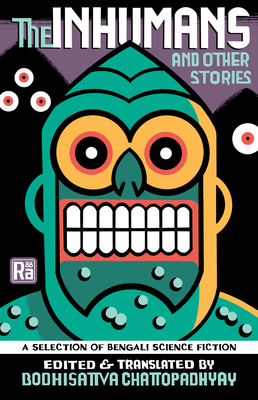
The Inhumans and Other Stories: A Selection of Bengali Science Fiction, ed. Bodhisattva Chattopadhyay, translated from the Bengali by Bodhisattva Chattopadhyay (MIT Press, March 12)
The first English translation of a cult science fiction favorite by Hemendra Kumar Roy, one of the giants of early Bangla literature, and other sf stories from the colonial period in India. Kalpavigyan—science fiction written to excite Bengali speakers about science, as well as to persuade them to evolve beyond the limitations of religion, caste, and class—became popular in the early years of the twentieth century. Translated into English for the first time, in this collection you’ll discover The Inhumans (1935), Hemendrakumar Roy’s satirical novella about a lost race of Bengali supermen in Uganda. Also included are Jagadananda Ray’s “Voyage to Venus” (1895), Nanigopal Majumdar’s “The Mystery of the Giant” (1931), and Manoranjan Bhattacharya’s “The Martian Purana” (1931).
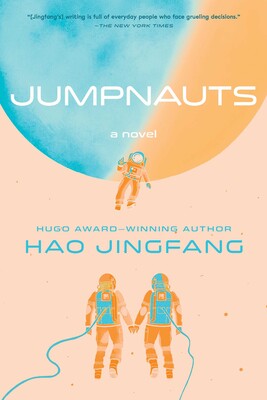
Jumpnauts by Hao Jingfang, translated from the Chinese by Ken Liu (S&S/Saga Press, March 12)
From the Hugo Award–winning author of Folding Beijing comes a gripping science fiction thriller in which three unlikely allies attempt a desperate mission of first contact with a mysterious alien race before more militaristic minds can take matters into their own hands.
APRIL
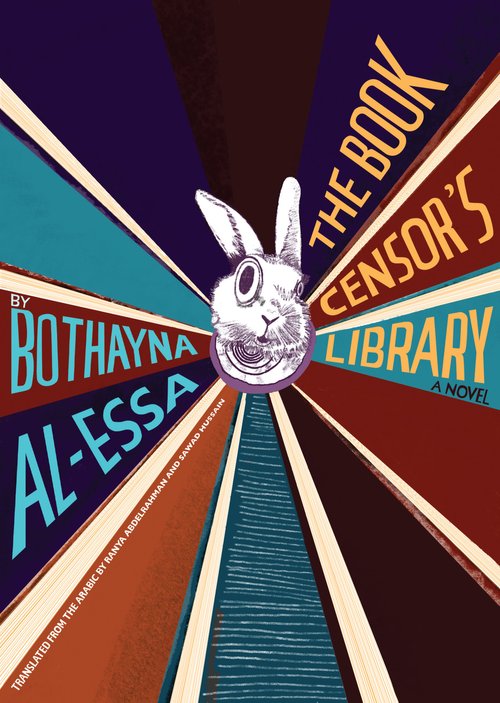
The Book Censor’s Library by Bothayna Al-Essa, translated from the Arabic by Ranya Abdelrahman and Sawad Hussain (Restless Books, April 30)
A perilous and fantastical satire of banned books, secret libraries, and the looming eye of an all-powerful government.
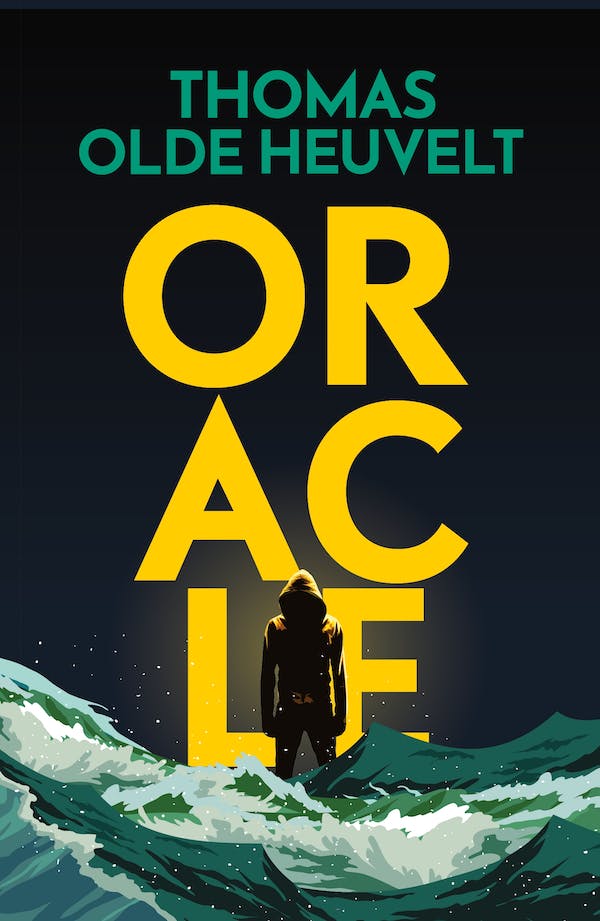
Oracle by Thomas Olde Heuvelt, translated from the Dutch by ? (Tor Nightfire, April 30)
On a foggy winter morning Luca Wolf and Emma Reich discover an eighteenth-century sailing ship stranded on a barren flower field, its name written on its side: Oracle. Emma, unable to resist, enters the hatch on the tilted deck. The ship’s bell begins to toll and no one sees her again. Not much later, eleven people have disappeared, Luca and his mother have been absconded by a clandestine government agency which has questions, no answers, and are determined to uncover the ship’s secrets before a media storm erupts. But as they force Robert Grim, a retired specialist of the occult with a strange history and a healthy dislike of authority, to unravel the mystery, the Oracle is revealed to be a harbinger of an ancient doom awakened underneath the sea. What follows is a maelstrom of international intrigue, history, young love, humanity’s relationship with climate and disease, and pure terror as they come face to face with an open doorway to apocalypse.

Swan Knight by Fumio Takano, translated from the Japanese by Sharni Wilson (Luna Press Publishing, April 30)
As the nineteenth century draws toward its close, King Ludwig II of Bavaria binge-watches television to escape his reality, side-lined by his own advisers. His one wish is to meet Wagner, the mysterious composer pumping out new music and scores of remixes every day. He sets out, alone and in disguise, to find Wagner in the maze-like subterranean city that sprawls deep beneath Munich. Meanwhile, Karl, a rookie musician hired by Wagner in the underground world, is shocked to be chosen as the lead singer for the Swan Knight TV music drama. But even in the depths of the earth, the insidious shadow of political intrigue lurks. Who is Wagner, the man behind the myth? And what ultimate destiny awaits Ludwig and Karl?
MAY

Woodworm by Layla Martinez, translated from the Spanish (Spain) by Sophie Hughes and Annie McDermott (Two Lines Press, May 14)
The house breathes. The house contains bodies and secrets. The house is visited by ghosts, by angels that line the roof like insects, and by saints that burn the bedsheets with their haloes. It was built by a smalltime hustler as a means of controlling his wife, and even after so many years, their daughter and her granddaughter can’t leave. They may be witches or they may just be angry, but when the mysterious disappearance of a young boy draws unwanted attention, the two isolated women, already subjects of public scorn, combine forces with the spirits that haunt them in pursuit of something that resembles justice.
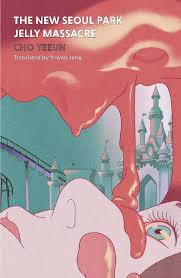
The New Seoul Park Jelly Massacre by Cho Yeeun, translated from the Korean by Yewon Jung (Honford Star, May 16)
At New Seoul Park, Korea’s greatest theme park, an enigmatic man tempts visitors with a mysterious jelly candy that promises an unbreakable bond. As the sun beats down on a muggy summer afternoon, a child separated from her disinterested parents, a single mother striving to create a memorable day on a shoestring budget, and a couple on the brink of splitting up, all end up tasting this ominous candy. Little do they know that a sinister force lurks beneath the innocent facade. The sweet and innocent soon turns grotesque as the jelly becomes the catalyst for a sticky, sweet massacre. Masterfully translated by Yewon Jung, The New Seoul Park Jelly Massacre weaves a chilling tale of deceptive sweetness and the body horror of slowly melting into your loved ones.
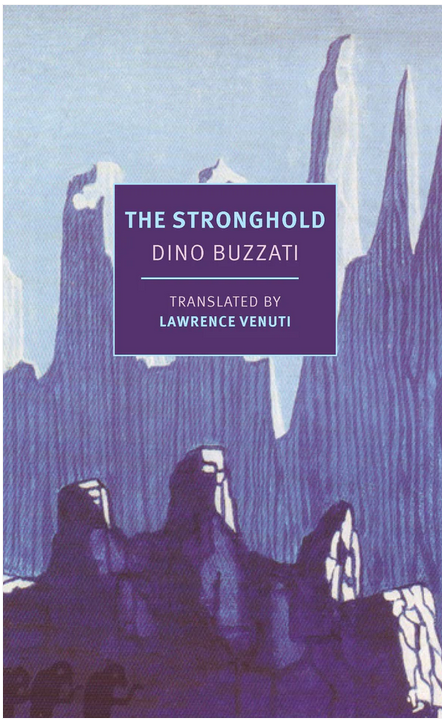
[new translation]
The Stronghold by Dino Buzzati, translated from the Italian by Lawrence Venuti (NYRB Classics, May 23)
Buzzati is one of the great Italian writers of the twentieth century, renowned for his fantastical imagination and for a touch that is as lyrical as it is light. The Stronghold, previously translated as The Tartar Steppe, is his most celebrated work, a book that has been read as a veiled attack on Mussolini’s fascist militarism, a prophetic allegory of the Cold War, and an existentialist fable.
JUNE
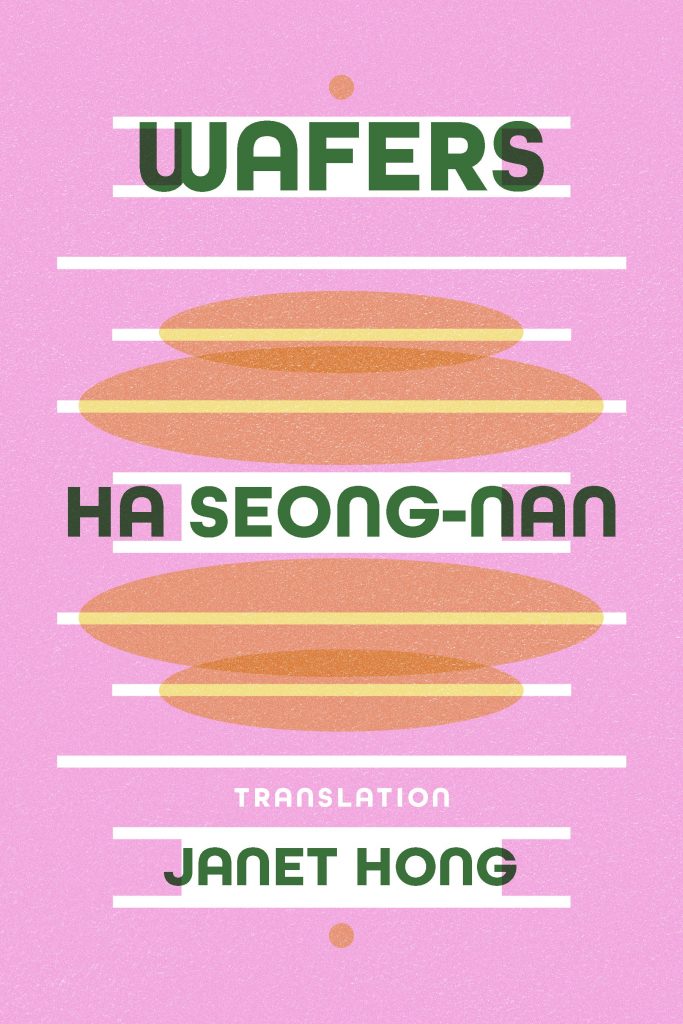
Wafers by Ha Seong-nan, translated from the Korean by Janet Hong (Open Letter, June 4)
This 2006 collection of short stories is in line with the unsettling, engrossing style of Ha’s other two collections that have been translated into English, the critical and commercial successes Flowers of Mold and Bluebeard’s First Wife. A best-seller in Korea, Ha Seong-nan is one of the stars of contemporary short fiction, writing edgy, socially conscious stories that bring to mind the novels of Han Kang and the film Parasite.
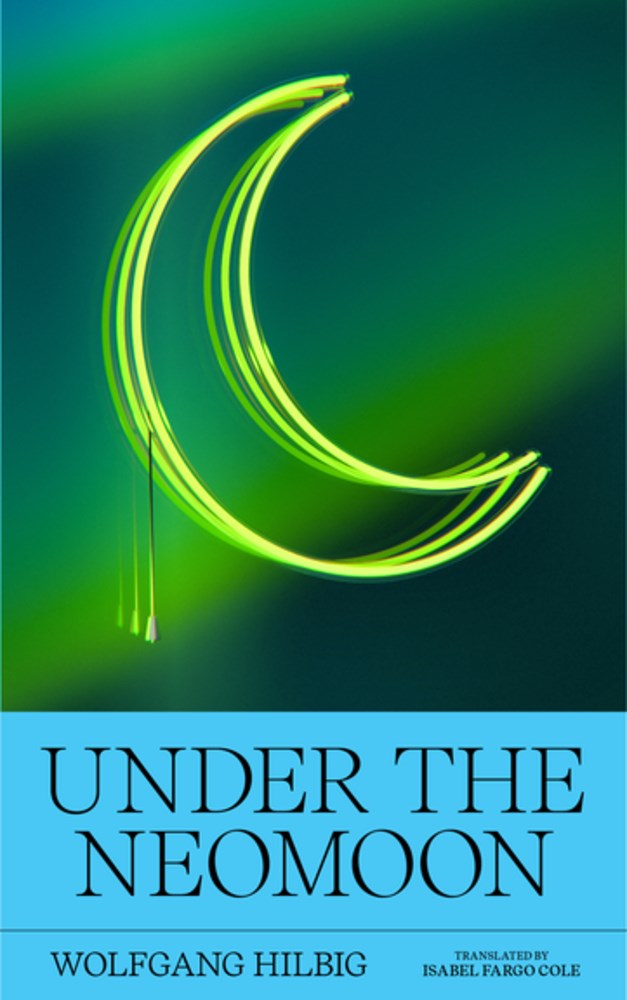
Under the Neomoon by Wolfgang Hilbig, translated from the German by Isabel Fargo Cole (Two Lines Press, June 11)
An electric collection that evokes the works of Andrei Tarkovsky and Ingeborg Bachmann, Under the Neomoon is a neon-bright reminder of humanity’s violent folly and the importance of storytelling from down below, from the wage worker’s hovel. An abandoned construction site. Glowering pits and furnaces. A lone man in a bungalow. Widely considered to be one of the great German writers of the twentieth century, Wolfgang Hilbig’s dark visions have long held readers aloft with their musical language and uncompromising vision of the modern world. In Under the Neomoon, his debut short story collection originally published in East Germany in 1982, Hilbig’s persistent fixations—factory pits, rampant nature, and split identities—are at their most visceral and brilliant.
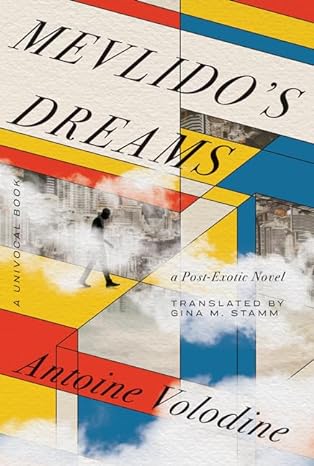
Mevlido’s Dreams: A Post-Exotic Novel by Antoine Volodine, translated from the French by Gina M. Stamm (University of Minnesota Press, June 25)
A meditative, postapocalyptic noir, Mevlido’s Dreams is an urgent communiqué from a far-future reality of irreversible environmental damage and civilizational collapse. Mevlido is a double agent working for the police and living in the last habitable city on the planet, a sprawling abyssal ruin marked by war and ruled by criminals. Suspended in the bardo between his loyalty to the surveillance state and to the anarchists, communists, and other rebels he monitors, Mevlido clings to life and hope—barely—in the city’s vast slums, haunted by the memory of the wife he failed to save during the last war and dreaming of a mysterious mission he is told he must accomplish. At the same time, an enigmatic organization existing elsewhere—the Organs—observes Mevlido’s actions and debates its responsibility to him and to humanity as a whole.
JULY

Pink Slime by Fernanda Trías, translated from the Spanish by Heather Cleary (Scribner, July 2)
In a city ravaged by a mysterious plague, a woman tries to understand why her world is falling apart. An algae bloom has poisoned the previously pristine air that blows in from the sea. Inland, a secretive corporation churns out the only food anyone can afford—a revolting pink paste, made of an unknown substance. In the short, desperate breaks between deadly windstorms, our narrator stubbornly tends to her few remaining relationships: with her difficult but vulnerable mother; with the ex-husband for whom she still harbors feelings; with the boy she nannies, whose parents sent him away even as terrible threats loomed. Yet as conditions outside deteriorate further, her commitment to remaining in place only grows—even if staying means being left behind.
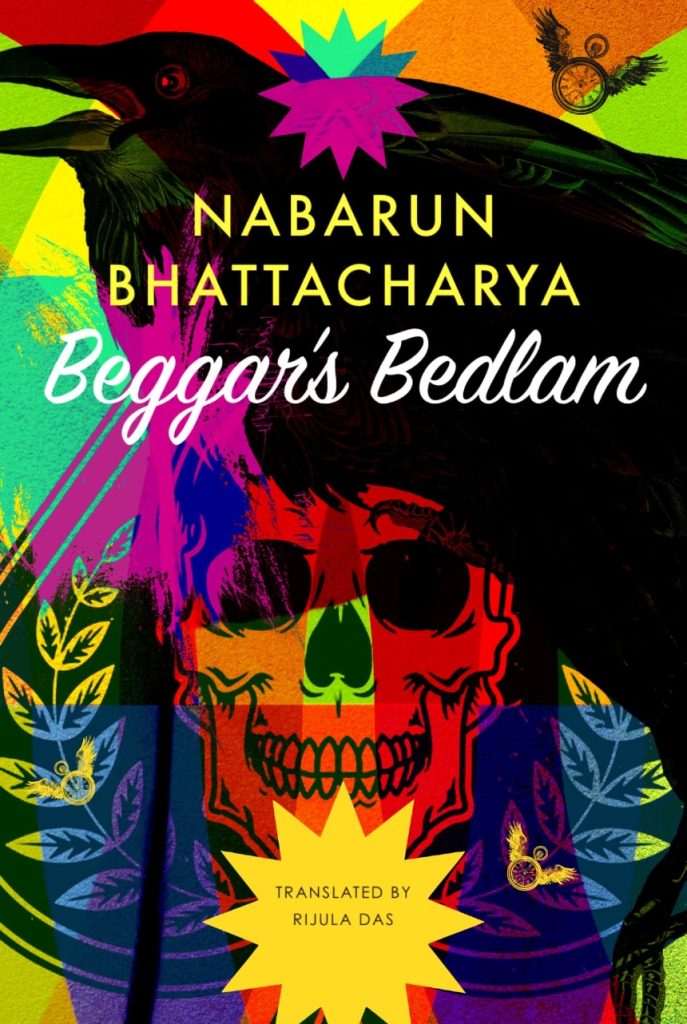
Beggar’s Bedlam by Nabarun Bhattacharya, translated from the Bengali by Rijula Das (Seagull Books, July 6)
Beggar’s Bedlam is a surreal novel that unleashes the chaos of the carnival on the familiar. Part literary descendent of Bulgakov’s The Master and Margarita and part a reconstruction of lost Bengali history, Nabarun Bhattacharya’s masterpiece is a jubilant, fizzing wire of subaltern anarchy and insurrection. Marshall Bhodi Sarkar and his lieutenant Sarkhel surreptitiously dig on the banks of the Ganges River looking for crude oil reserves. Instead, they unearth curved daggers, rusty broadswords, and a Portuguese cannon. Bhodi is an occasional military man and the lead sorcerer of the secret black-magic sect named Choktar. He joins forces with the flying Flaperoos—men with a predilection for alcohol and petty vandalism—to declare outright war against the Marxist–Leninist West Bengal government. In a bloodless revolution that is fascinating in its utter implausibility, a motley crew of yet more implausible characters come together in a magic-realist fictional remapping of Calcutta.
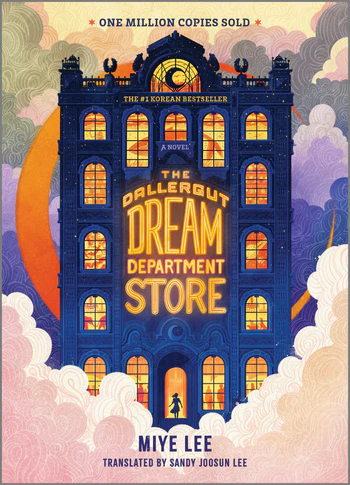
The Dallergut Dream Department Store by Miye Lee, translated from the Korean by Sandy Joosun Lee (Hanover Square Press, July 9)
In a mysterious town hidden in our collective subconscious there’s a department store that sells dreams. Day and night, visitors both human and animal shuffle in to purchase their latest adventure. Each floor specializes in a specific type of dream: childhood memories, food dreams, ice skating, dreams of stardom. Flying dreams are almost always sold out. Some seek dreams of loved ones who have died. For Penny, an enthusiastic new hire, working at Dallergut is the opportunity of a lifetime. As she uncovers the workings of this whimsical world, she bonds with a cast of unforgettable characters, including Dallergut, the flamboyant and wise owner, Babynap Rockabye, a famous dream designer, Maxim, a nightmare producer, and the many customers who dream to heal, dream to grow, and dream to flourish.
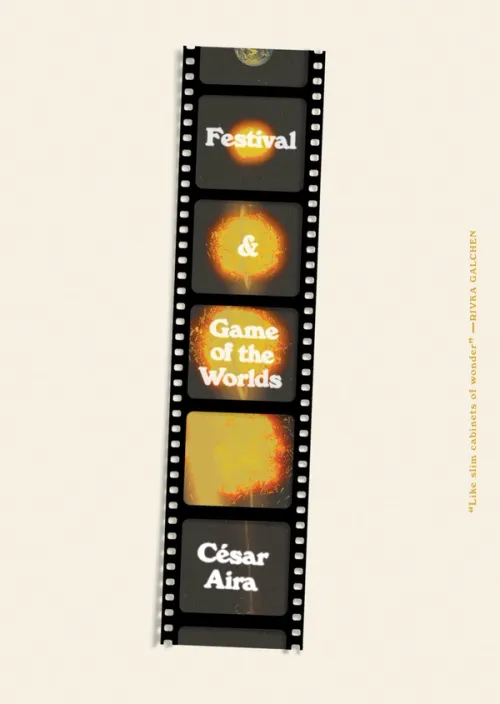
Festival & Game of the Worlds by César Aira, translated from the Spanish by Katherine Silver (New Directions, July 23)
In Festival, the genius postmodern sci-fi filmmaker Alec Steryx is the star guest of a film festival in an unnamed country. But he’s brought a surprise: his nonagenarian mother. Everyone is baffled. Why? Half-blind and terminally cranky, she does nothing but complain, despite insisting on attending every screening and reception. As Steryx’s mother gums up the works for the festival organizers, larger problems are in store … A delightfully baroque comedy of errors, Festival is, all at once, a loving parody of the institutions that support artists, a meditation on postmodern art, and a propulsive, lyrical, surreal adventure. In the far, far future, a middle-aged father is behind the times. Bemused and disturbed, he watches his children play the eponymous Game of the Worlds, a Total Reality war game that involves the annihilation of countless alien civilizations—which are at least as real as the narrator’s own. As he debates the ethics of the game, struggles with his home’s “intelligent system,” and fumblingly manipulates his Discourse Corrector (a dead ringer for ChatGPT) on virtual beachside dates, an errant thought threatens to set a world-ending chain of logic into motion: the return of the Idea of God … Epic and domestic, madcap and musing by turns, this prescient novel reads like a message in a bottle from a bewitchingly strange yet all-too-familiar future.

The Black Orb by Kim Ewhan, Sean Lin Halbert (Profile, July 31)
One evening in downtown Seoul, Jeong-su is smoking a cigarette outside when he sees something impossible: a huge black orb appears out of nowhere and sucks his neighbour inside.The orb soon begins consuming other people and no one knows how to stop it. Impervious to bullets and tanks, the orb splits and multiplies, chasing the hapless residents of Seoul out into the country and sparking a global crisis with widespread violence and looting. Jeong-su must rely upon his wits as he makes the arduous journey in search of his elderly parents. But the strangest phases of this ever-expanding disaster are yet to come and Jeong-su will be forced to question everything he has taken for granted.
AUGUST
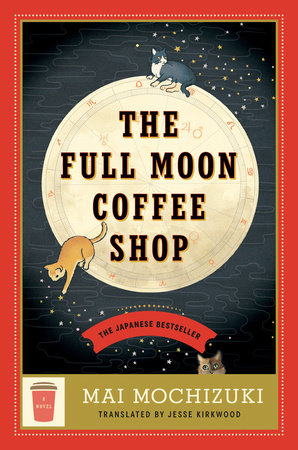
The Full Moon Coffee Shop by Mai Mochizuki, translated from the Japanese by Jesse Kirkwood (Ballantine, August 20)
In Japan, cats are a symbol of good luck. As the myth goes, if you are kind to them, they’ll one day return the favor. And if you are kind to the right cat, you might just find yourself invited to a mysterious coffee shop under a glittering Kyoto moon. This particular coffee shop is like no other. It has no fixed location, no fixed hours, and it seemingly appears at random. It’s also run by talking cats. While customers at the Full Moon Coffee Shop partake in cakes and coffees and teas, the cats also consult their star charts, offering cryptic wisdom, and letting them know where their lives veered off course. Every person who visits the shop has been feeling more than a little lost. For a down-on-her-luck screenwriter, a romantically stuck movie director, a hopeful hairstylist, and a technologically challenged website designer, the coffee shop’s feline guides will set them back on their fated paths. For there is a very special reason the shop appeared to each of them . . .
SEPTEMBER
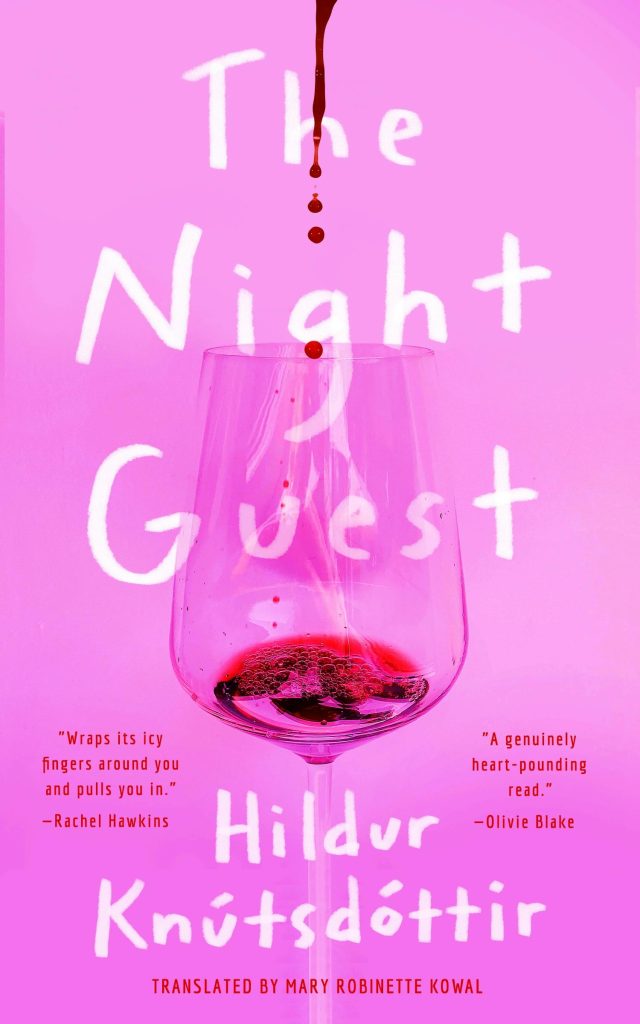
The Night Guest by Hildur Knútsdóttir; translated from the Icelandic by Mary Robinette Kowal (Tor Nightfire, September 3)
The Night Guest is an eerie and ensnaring story set in contemporary Reykjavík that’s sure to keep you awake at night. Iðunn is in yet another doctor’s office. She knows her constant fatigue is a sign that something’s not right, but practitioners dismiss her symptoms and blood tests haven’t revealed any cause. When she talks to friends and family about it, the refrain is the same — have you tried eating better? exercising more? establishing a nighttime routine? She tries to follow their advice, buying everything from vitamins to sleeping pills to a step-counting watch. Nothing helps. Until one night Iðunn falls asleep with the watch on, and wakes up to find she’s walked over 40,000 steps in the night . . .What is happening when she’s asleep? Why is she waking up with increasingly disturbing injuries? And why won’t anyone believe her?
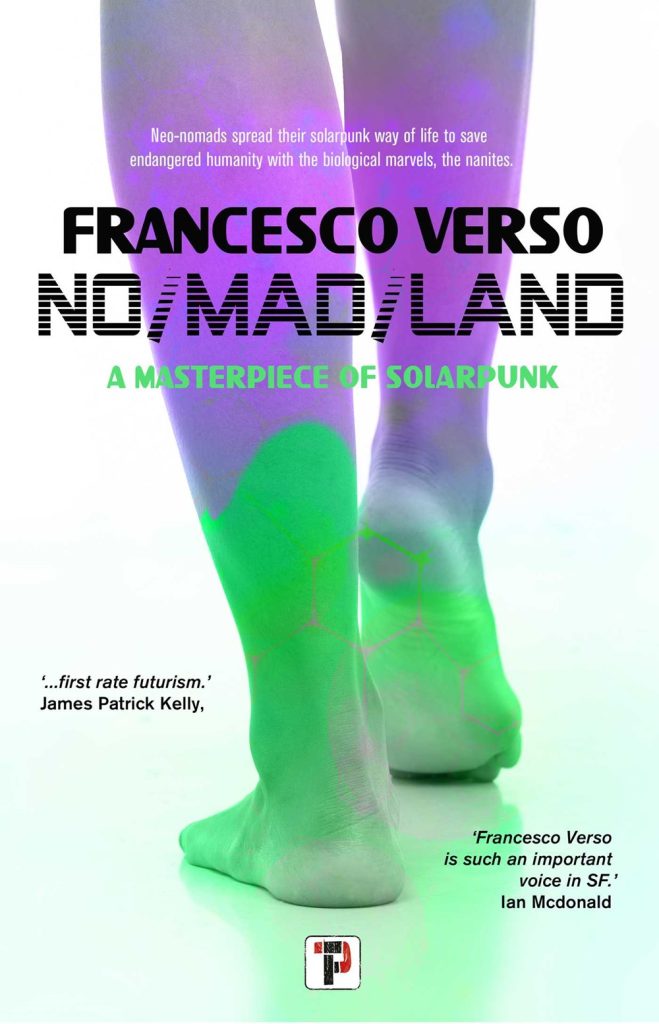
No/Mad/Land by Francesco Verso, translated from the Italian by Sally McCorry (Flame Tree Publishing, September 10)
The Pulldogs leave Rome to embrace a new condition: leaving no trace of their passage, they shape a new challenging lifestyle: wandering around the world as neo-nomads to spread their solarpunk way of living and to engage on a never-ending mission to save endangered human cultures with nanites. But the vision of Alan and Nicolas about how the Pulldogs should live collide, and as a consequence, they split in two groups: one goes North to live in the beautiful wilderness of Siberia and Mongolia, while the other goes South to save the Dogon tribe from a possible extinction due to climate change in Central Africa. But at the end everybody – including a new generation of Pulldogs – will have to come back to Rome, where their incredible transformation started many years before. Sequel to the celebrated The Roamers.
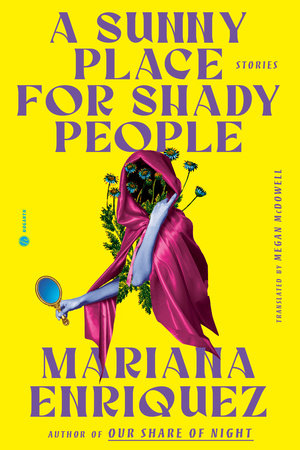
A Sunny Place for Shady People by Mariana Enriquez, translated from the Spanish (Argentina) by Megan McDowell (Hogarth, September 17)
In twelve spellbinding new stories, Enriquez writes about ordinary people, especially women, whose lives turn inside out when they encounter terror, the surreal, and the supernatural. A neighborhood nuisanced by ghosts, a family whose faces melt away, a faded hotel haunted by a girl who dissolved in the water tank on the roof, a riverbank populated by birds that used to be women—these and other tales illuminate the shadows of contemporary life, where the line between good and evil no longer exists.
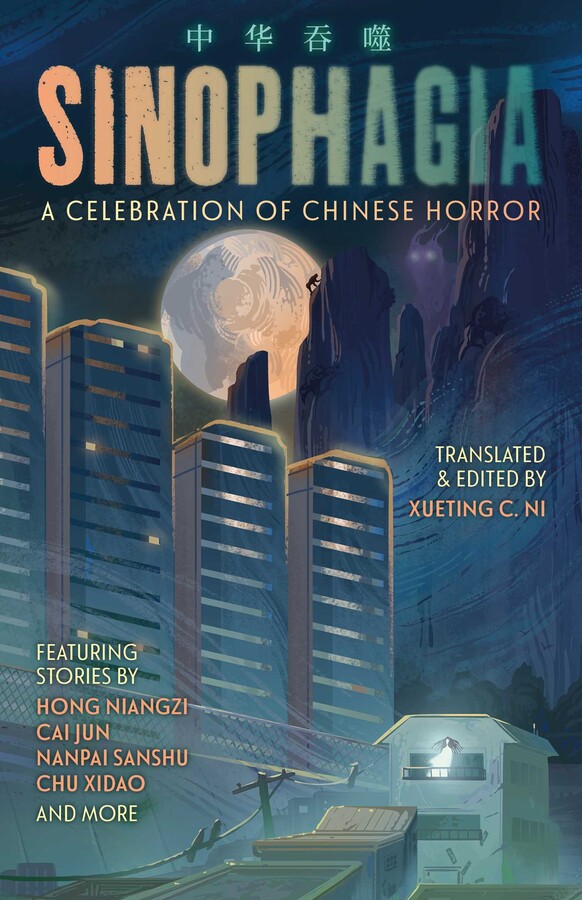
Sinophagia: A Celebration of Chinese Horror 2024, edited and translated by Xueting Christine Ni (Solaris, September 24)
Fourteen dazzling horror stories delve deep into the psyche of modern China in this new anthology curated by acclaimed writer and essayist Xueting C. Ni, editor and translator of the British Fantasy Award-winning Sinopticon. From the menacing vision of a red umbrella, to the ominous atmosphere of the Laughing Mountain; from the waking dream of virtual working to the sinister games of the locked room… this is a fascinating insight into the spine-chilling voices working within China today – a long way from the traditional expectations of hopping vampires and hanging ghosts. This ground-breaking collection features both well-known names and bold upcoming writers, including: Hong Niangzi, Fan Zhou, Chu Xidao, She Cong Ge, Chuan Ge, Goodnight, Xiaoqing, Zhou Dedong, Nanpai Sanshu, Yimei Tangguo, Chi Hui, Zhou Haohui, Su Min, Cai Jun, and Gu Shi.
OCTOBER
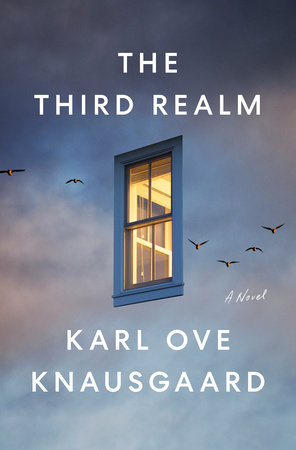
The Third Realm by Karl Ove Knausgaard, translated from the Norwegian by Martin Aitken (Penguin Press, October 1)
Shapeshifting visitors, unsolved murders in the forest, black metal bands and an online bank of thousands of people’s dreams—the star is back. Karl Ove Knausgaard’s The Morning Star kept readers up all night, immersed with nine characters whose individual lives are heightened by the sudden appearance of a blazing new star, and The Wolves of Eternity portrayed the intimate experiences of two estranged half siblings decades before the star rises. In The Third Realm, the effects of the star are felt around the world, as people start to reckon with what it might possibly mean. With this next novel, the limitless scale and ambition of Knausgaard’s new universe is clear. This is life, death, the human condition and the real-time creation of an epic and utterly immersive world.
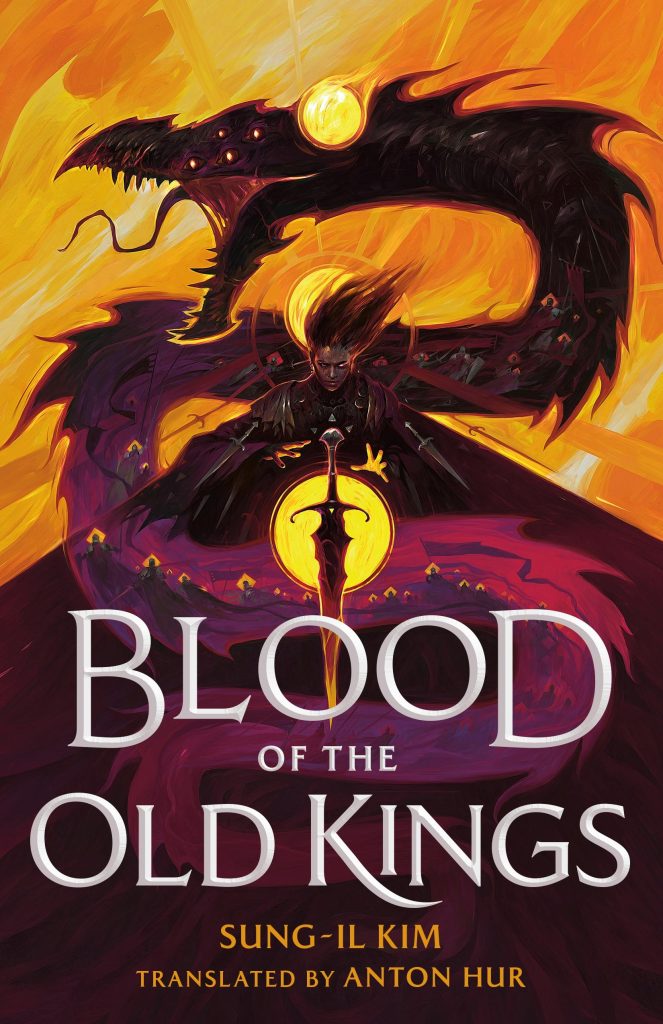
Blood of the Old Kings by Sung-il Kim, translated from the Korean by Anton Hur (Tor Books, October 8)
In an Empire run on necromancy, dead sorcerers are the lifeblood. Their corpses are wrapped in chains and drained of magic to feed the unquenchable hunger for imperial conquest. Born with magic, Arienne has become resigned to her dark fate. But when the voice of a long-dead sorcerer begins to speak inside her head, she listens. There may be another future for her, if she’s willing to fight for it. Miles away, beneath a volcano, a seven-eyed dragon also wears the Empire’s chains. Before the imperial fist closed around their lands, it was the people’s sacred guardian. Loran, a widowed swordswoman, is the first to kneel before the dragon in decades. She comes with a desperate plea, and will leave with a sword of dragon-fang in hand and a great purpose before her. In the heart of the Imperial capital, Cain is known as a man who gets things done. When his best friend and mentor is found murdered, he will leave no stone unturned to find those responsible, even if it means starting a war.
NOVEMBER
DECEMBER
